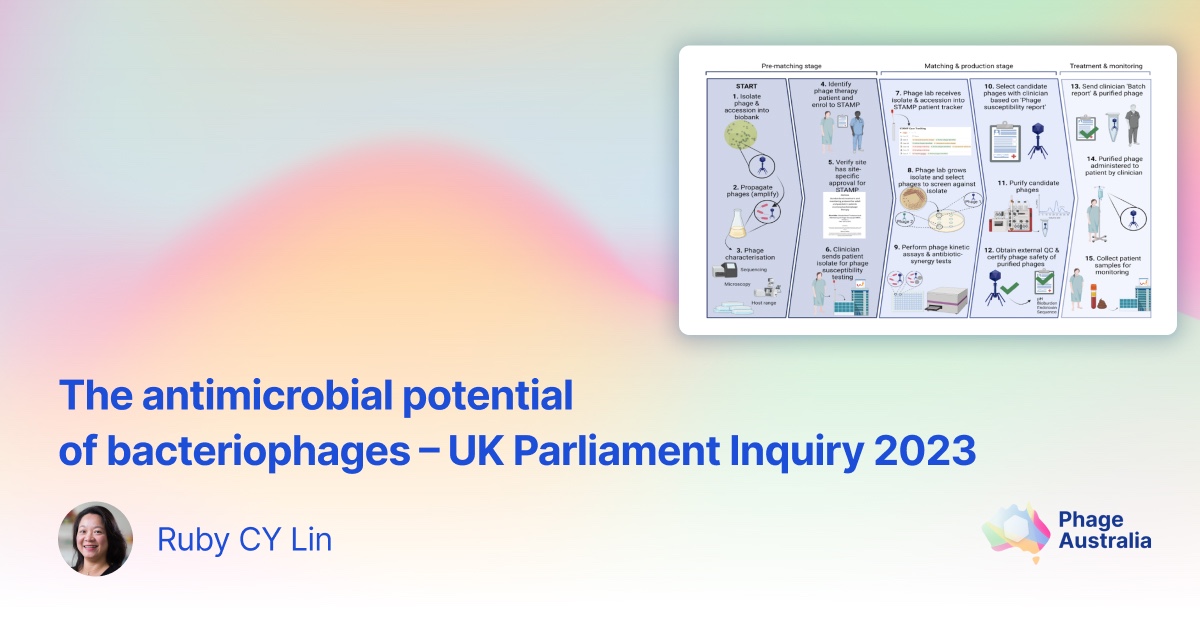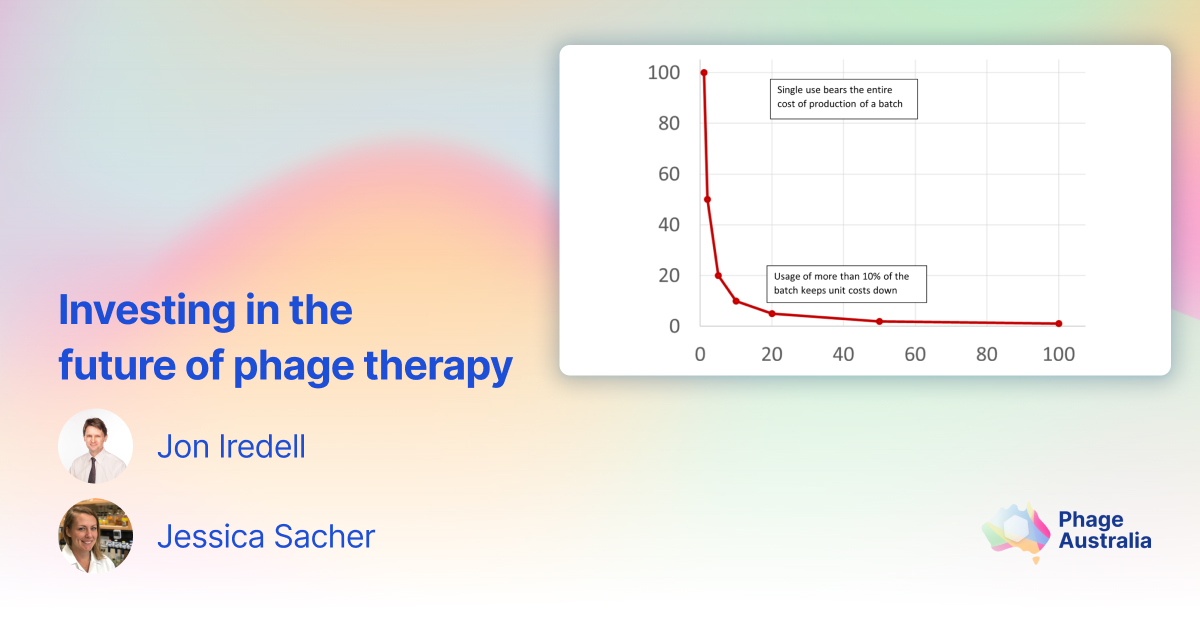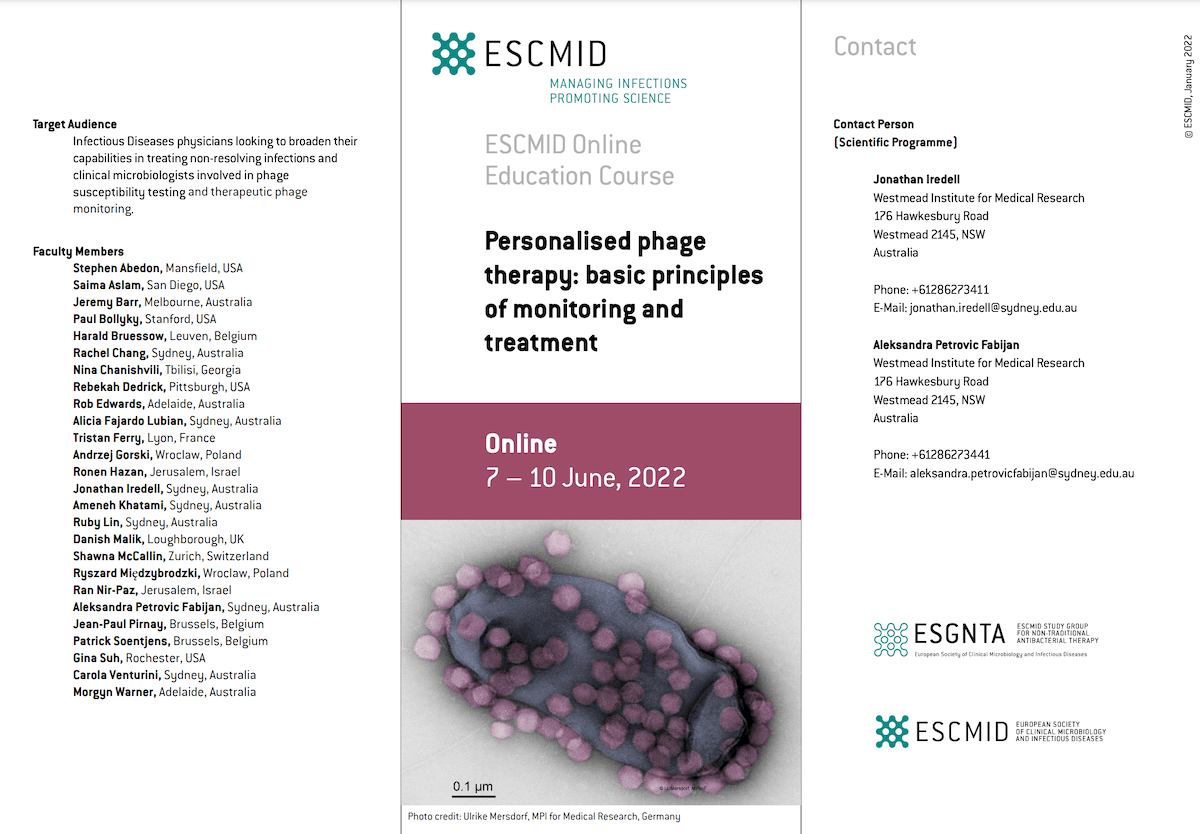Jon Iredell
Jon is an Infectious Disease Physician and Microbiologist who divides his time between Westmead Hospital in a combined Infectious Diseases and Microbiology Department and his research which is supported by the NHMRC at the University of Sydney.
His major interests are in critical infection, including the study of bacterial septic shock, and in bacterial genetics and ecology. Formal affiliations are (1) Conjoint Professor of Medicine and Microbiology, Sydney Medical School The University of Sydney/The Westmead Institute for Medical Research and the Marie Bashir Institute, (2) Senior Staff Specialist, Western Sydney and Westmead Hospital and Deputy Director Microbiology, Pathology West (NSW Pathology) and Institute of Clinical Pathology and Medical Research, (3) Director, Centre for Infectious Diseases and Microbiology at Westmead Institute for Medical Research. List of publications.
Bacteriophages (phages) are viruses with the ability to infect bacteria, and they have recently attracted substantial attention as potential therapeutic alternatives or adjuvants to antibiotic therapy due to the global urgency of antimicrobial resistance. Antibiotics have been the clinical ‘gold standard’ for treating bacterial infections, and their pharmacokinetics/pharmacodynamics (PK/PD) have been extensively investigated over the past decades. Unfortunately, there has been a significant lack of research on the PK/PD of phage therapy, severely hindering its clinical translation. Recognising this as a major hurdle, excellent reviews summarising the available literature on phage PK/PD have been published over recent years. The aim of this present narrative review is to discuss the PK/PD challenges with the clinical translation of phage therapy and address the voids that need to be filled.
Staphylococcus aureus is a leading cause of bacteraemia and endocarditis in which intraclonal genetic variation, but not true polyclonal bacteraemia, is well documented. We describe a case of 36-year-old women with simultaneous and persistent bacteremia from two strains of Staphylococcus aureus that probably would have gone unrecognised because of the identical antibiotic profiles if had we not used bacteriophage susceptibility (“phage typing”) to further characterise the strains. In this patient, the dual bacteraemia was followed months later by another bacteraemia that likely would have been deemed a relapse of the original infection, except that we used similar methods to identify a third and unrelated strain. Our patient eventually responded well to antibiotics, and her bacteriophage therapy probably contributed little to that recovery. However, bacteriophage therapy required that we identify the strain of S. aureus causing her bacteraemia, and that requirement led directly to our identification of dual strains with identical antibiotic susceptibilities. Because of this experience, we alert other clinicians to the possibility of polyclonal infections with S. aureus. When bacteraemia is suspected, clinicians often pick a single colony or a few colonies from the original culture because prompt identification of the organism is critical and this practice provides a faster turnaround time. We caution that it might not identify different strains with different antibiotic sensitivities when polyclonal infections are present.
The first phage therapy course jointly organised by ESCMID (European Society of Clinical Microbiology and Infectious Diseases) and ESGNTA (ESCMID Study Group for Non-traditional Antibacterial Therapy) and includes four sessions with cutting-edge scientific talks in the field of personalised phage therapy : (1) therapeutic monitoring (2) immune response to bacteriophages (3) formulation and administration of bacteriophages for therapy, and (4) current state and prospects of oral phage therapy, followed by live Q&A sessions and panel discussion.
Academics plan to roll out therapy widely in Australia: Researchers at the University of Sydney, Western Sydney Local Health District and the Westmead Institute for Medical Research are developing a therapeutic solution to antimicrobial resistance that predates the discovery and wide usage of antibiotics… Link to Paper
An expert team, led by Director of the Centre of Infectious Diseases and Microbiology at the Westmead Institute for Medical Research (WIMR) Professor Jon Iredell, is developing a key alternative to antibiotics and central to the treatment are phages…



